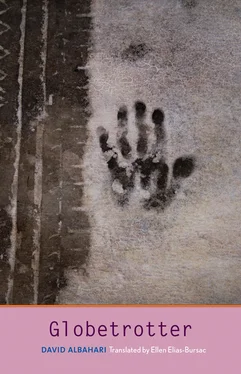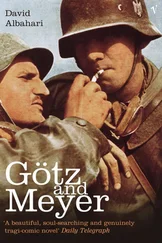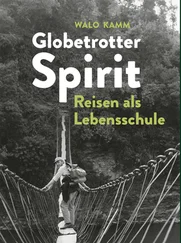Most of us, he said, lag behind life and never really catch up. One might say, he said, that we trail after it, forever late for what life is all about — in which case, he said, we should snap to it and get that tea before someone else drinks it. Ivan Matulić’s grandson chuckled. Daniel Atijas only shook his head. There is no better place in Banff for tea, I said, than the restaurant at the old Banff Springs Hotel, and so we sat in the grandson’s car, drove into town, crossed the bridge, and drove along the other bank of the Bow River. I remarked how odd it was that no one had taken Daniel Atijas there yet, for going there was usually the first thing visitors did in Banff, so I regaled them until we got there with tales from its history. The hotel was begun, I said, in 1886, as one of a series of castle-like hotels which the Canadian Railway began to build after laying its railway tracks through the Rocky Mountains. Since Banff was already known as a spa with hot mineral springs, the administration of the railway wanted to build something fancier than they had been planning to build elsewhere and asked Bruce Price, a noted architect, to draft the design. One of the most beautiful sites in Banff was chosen for the hotel: where the Spray flows into the Bow, on a bluff overlooking the two rivers. When William Cornelius Van Horne, president of the Canadian Pacific Railway, visited the construction site, he almost fainted in horror. Someone had been following the blueprints incorrectly and had turned the plans around 180 degrees, so the finest rooms looked out on featureless slopes while the hotel kitchen had a sweeping view of the river valley and mountains.
The plans were quickly adjusted, I said, and the hotel opened, in its first iteration, that is, on June 1, 1888, advertised as the largest hotel in the world. With the surge in the number of visitors from Europe and the United States, the hotel grew, so now, I said, there are almost six hundred rooms, though it certainly is not the world’s largest. At the turn of the century it had grown in height, I said, so a guest had been quoted as saying that, yes, the new building was, indeed, towering; the only thing that towered higher was the price of drinks at the bar. As I had reckoned, after last night’s binge of drinking no one was amused. The hotel acquired its current appearance, what we see today, I said, in the late 1930s, and someone once described it nicely, saying it had “hallways for invalids, towers for stargazers and balconies for lovers.” Considering the state we were in, said Daniel Atijas, there was nothing left for us to do but stick to the hallways. Again no one laughed. Its appearance as a castle, which might more readily be described as a paraphrase of castle features, was unconvincing today, and once a French painter who had also been staying at the Banff Centre announced that it was a Hollywood version of a European castle. He said this with disdain, and I had never forgiven him. I could have gone on entertaining them with any number of hotel ghost stories, tales of the celebrities who had stayed there, a story of how the first runway for planes was laid in about 1930, when Benny Goodman decided to visit Banff by plane, but Daniel Atijas was impressed enough with what I had already related, and this was apparent, so I hurried us through the labyrinthine hotel corridors and down countless stairs, at some points aptly gloomy, until we got to the restaurant, from which stretched a view of the Fairholme Range with its snow-covered peaks.
We agreed on green tea at, I confess, my urging, after the waiter reeled off a list of ten varieties, which represented, he remarked, only a small fraction of their supplies in the kitchen. Silence reigned around the table while we were waiting for the tea, as is often the case. Daniel Atijas was absorbed by the view, his lips moving only now and then, as if they were retrieving long-forgotten sentences. Ivan Matulić’s grandson sat with his head bowed as if regretting, suddenly, having consented to come with us, though no gesture confirmed this: no twitching of fingers, biting of lips, crossing of legs. He did nothing but be quiet, which is, of course, the most common sign of the worst agitation. I pretended to zero in on reading the menu, peeking furtively over the top and around the edges, though I did find the dessert section absorbing. Had I not been with Daniel Atijas and Ivan Matulić’s grandson, that list could have brought tears to my eyes, but as it was, I had to restrain myself, especially because the waiter was already approaching our table with a tray on which he had plates, fragile cups, spoons, a tea pot, a milk pitcher, a sugar bowl, and a bowl of scones. Ivan Matulić’s grandson looked up only after the waiter, having served the tea, had moved far enough away, and said it would be best, perhaps, for him to apologize first. Yesterday, he said, at the very beginning he had broached a subject that had been bothering him, but later, he said, as we all knew, that beginning was irreparably damaged, and where there is no beginning, there can be no end.
He stopped, looked at us, sipped his tea. He had already spoken, he said, of how he had felt like a prisoner, how he had suffered the pressure of his limited ethnic choices and fled the Croatian language as if it were a ball of fire. Language truly is fire, said Daniel Atijas at that point, except that while some succeed in escaping fire, no one escapes language. Ivan Matulić’s grandson said he knew nothing about that; his goal at the time had been to get as far away as possible from his parents’ tongue, the umbilical cord that was threatening to kill him, or so he was convinced. As soon as he graduated from secondary school he moved out of his parents’ place and rented a house with friends in the older, rundown part of town. To his great surprise, he said, his parents did not protest; they even helped him furnish his room as nicely as possible. His mother, he said, shed a tear or two, but there were no recriminations or quarrels. He was his own man and could do what he wanted with his life. He did not, however, he said, do anything much with it; at first he took every job that was offered, collapsing into bed at night, dead tired, rising the next morning a wretched soul who could hardly wait for each day to pass. Later things got better, he said: he managed to complete a few college courses and focus on accounting, and he got a job in a large petroleum concern, convinced all the while that he was building impenetrable walls around himself with something which, he said, could be described as a sense of Canadian identity. And then, he said, the war broke out in Yugoslavia, and something changed. He began following the news, feeling queasy, recognizing in himself Croatian words that he was convinced he had long since forgotten.
He couldn’t explain just what had happened, he said, but it was as if he were rid of something, as if he had shed one skin and acquired another, as if he were both forgetting and renewing himself, becoming something he had never been. Even then he had no thought of returning to his family home, but he remembered several old acquaintances, started going to church, frequented two or three cafés; and his world acquired a dimension, which, if someone had asked him earlier, he would have firmly asserted did not exist. Immediately, and he had to say this, he began meeting people who tried to persuade him to go off and fight for Croatia, but though he considered it seriously, particularly while the hostilities were under way against Vukovar and the bombing of Dubrovnik began, he still couldn’t see himself in uniform or, even less, wielding a weapon, though those thoughts, slowly but surely, brought him to the idea that he should go to Croatia as a member of a humanitarian organization, as, ultimately, three years later, he did. Now that he was talking about all this so readily, he said, in this old-fashioned hotel with a cup of fine tea before him, how interesting it was that all those years he had never once given a single thought to history. All of it existed for him only in the present, as it was unfolding, and none of it had anything to do with what had gone before, or, at least as far as he was concerned, it was connected only to whatever event had immediately preceded it; in all these years nothing had found its way to him, least of all the articles appearing from time to time in the daily and weekly press that claimed to be espousing an objective, historically founded interpretation of events in Croatia and Yugoslavia.
Читать дальше







![David Jagusson - Fesselspiele mit Meister David [Hardcore BDSM]](/books/486693/david-jagusson-fesselspiele-mit-meister-david-har-thumb.webp)




